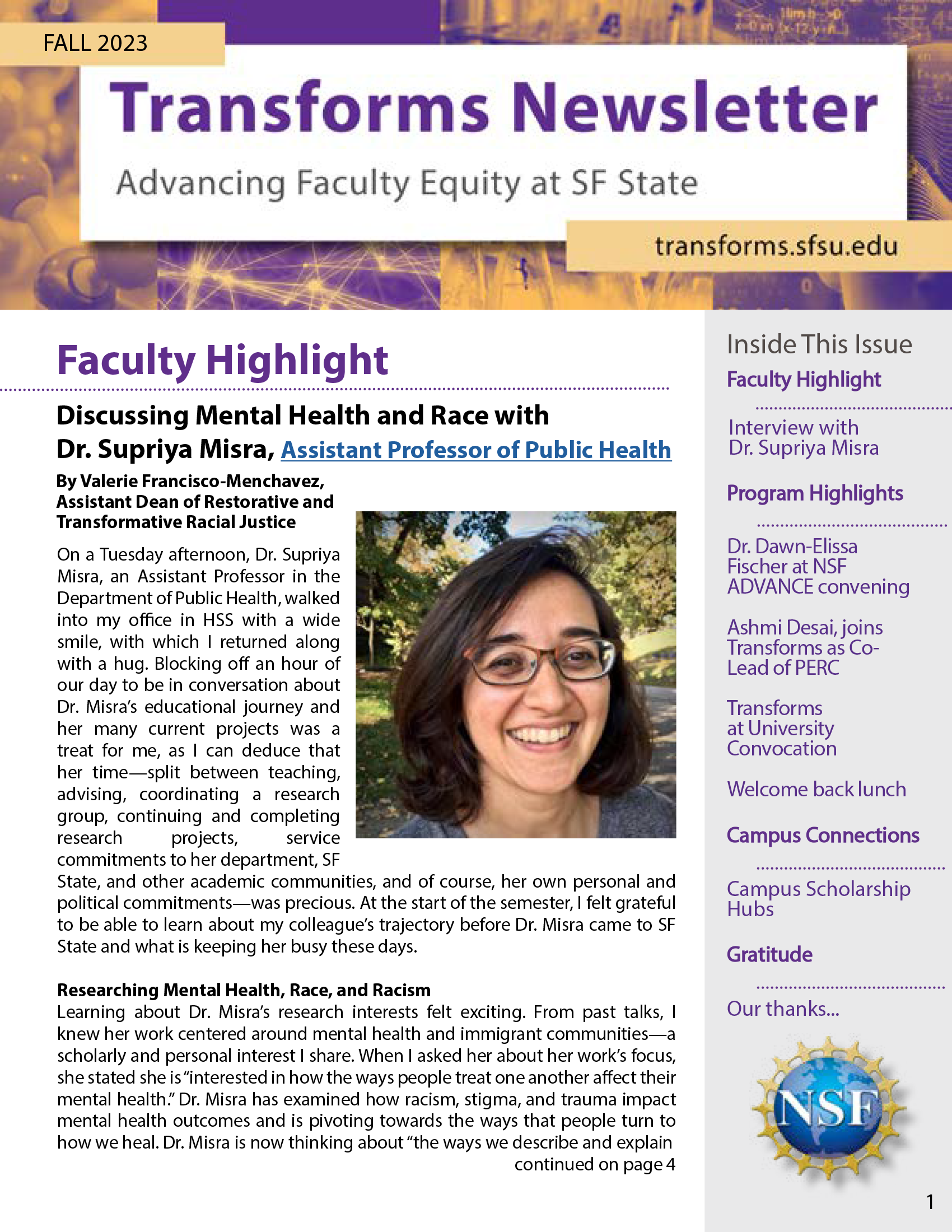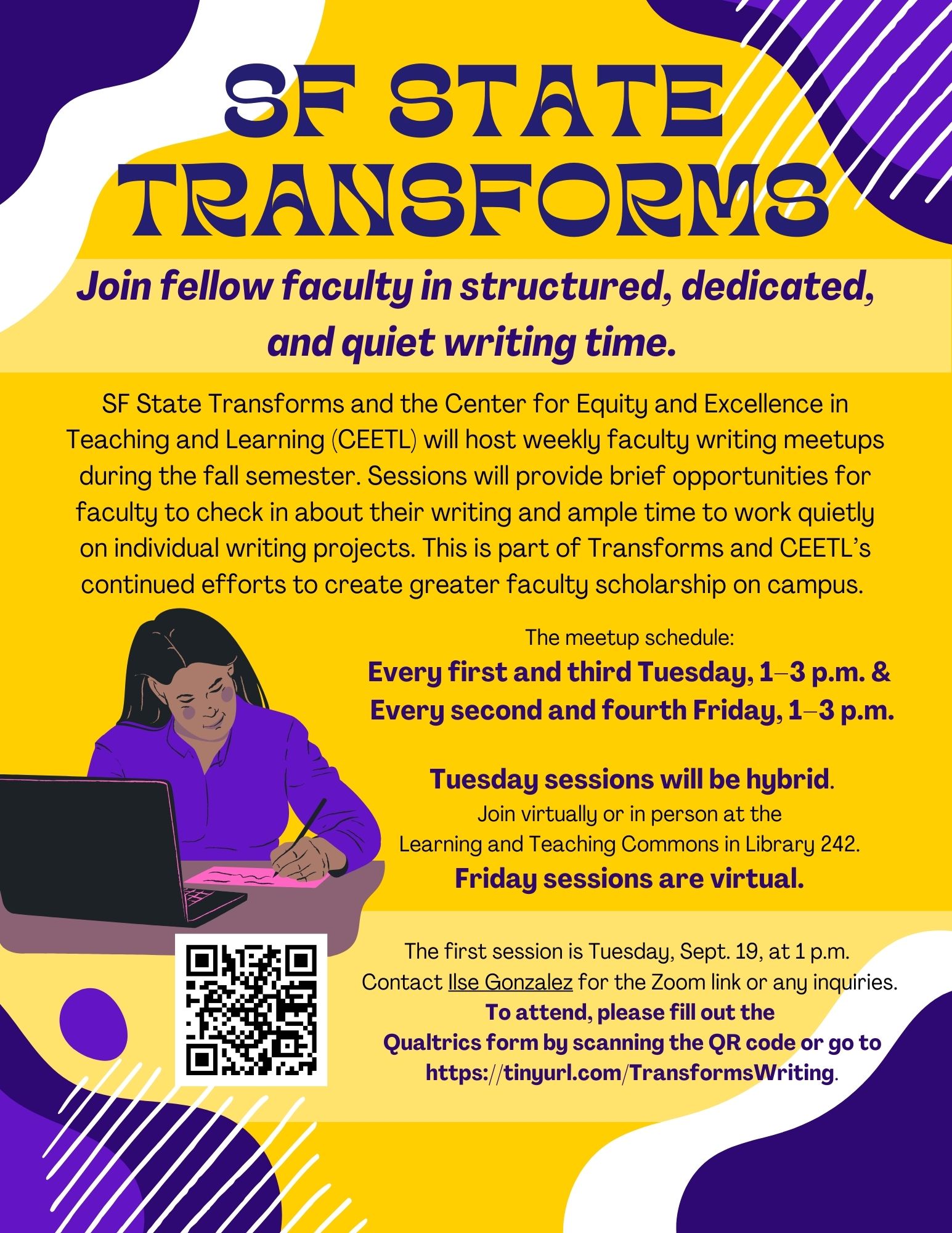


The PERC Portal is Now Available
The Promoting Equity and Relationships Amongst Colleagues (PERC) program promotes healthy relationships between university employees by providing space where relationships can be built or repaired using restorative circles.
PERC is a collective of staff and faculty who have received extensive training in restorative practices. Please click here to learn more and submit a concern.
SCHOLARSHIP & SERVICE
To support faculty careers in ways that value and supports scholarship and service. For scholarship to work toward designing and implementing mechanisms that emphasize interdisciplinary collaboration, cross-college engagement, and faculty inspiration and development that begins with an intersectional lens and ensures equity for women faculty of color, white women, and faculty of all intersectional gender and racial/ethnic identities across campus. For equity in service to ensure balance, transparency, and accountability for service work-loads that value and instill professional development.
HARM REDUCTION & RESTORATIVE PRACTICE
To reduce bias and related harms using a mechanism that identifies, discusses, and restores faculty relationships and policies and practices that structure professional careers at SF State. Our work is focused on micro-level interactions and relations and the macro-level of systemic change. Our goal through restorative practices is to promote systems that foster equitable relationships and opportunities for leadership.

Land Acknowledgment
The campuses of San Francisco State University on the San Francisco peninsula and north Bay are located within the occupied territories of the Ramaytush Ohlone and the Coastal Miwok (who, along with the Southern Pomo, are organized as the Federated Indians of Graton Rancheria).

Terminology
Intersectionality
Feminism seeks to understand and change how power relations and social structures affect people’s lives differently. Intersectionality is an important approach that highlights and attends to the interlocking structures of power and oppression that unevenly shape social life for different groups, often rendering some more visible and supported and others marginalized and/or minorities.
Intersectionality is a theory that originated in Black feminist thought to account specifically for how gender and race(ism) intertwine as systems in ways that structure social well-being. Social identities and categories such as race and ethnicity, gender, sexuality, immigration status, and disability intersect differently, differentially distributing access to professional rewards and opportunities. We value intersectional lives and identities and attend to the working of power.
Faculty of Color
Faculty of Color represents SF State faculty who align with the racial demographics collected by California and the CSU. All genders within this group are underrepresented in the CSU system and academia. Institutional data indicates underrepresentation among both tenure-track and non-tenure-track faculty. The umbrella term Faculty of Color encompasses individuals with African American, Latina/x, Indigenous, Filipino, Pacific Islander, and other Asian backgrounds. We prefer specificity when discussing racial categories and people's experiences, avoiding generalizations. To address racial equity and inequity, we strategically use the term BIPOC (Black, Indigenous, and People of Color) alongside the umbrella term Faculty of Color, considering the privileges associated with whiteness in academia and beyond. Recognizing the intersectionality of race, gender, and other forms of oppression, we emphasize the need for intersectional approaches to support women and non-binary faculty in STEM.
Gender
Women, non-binary, gender expansive, transgender, and genderqueer faculty are often marginalized and minoritized in STEM and higher education. We bring an intersectional analysis to our work of transforming SF State's gender equity.
Faculty
Faculty includes all those who teach our students (Lecturers and TT).
A significant component of power relations in higher education is how faculty are hired, promoted, and paid as lecturers. Another operation is the ways TT Faculty are supported along a career advancement track from assistant to associate to full.
Our goals for intersectional change include advancing faculty equity more comprehensively and beyond STEM into the larger campus community.
